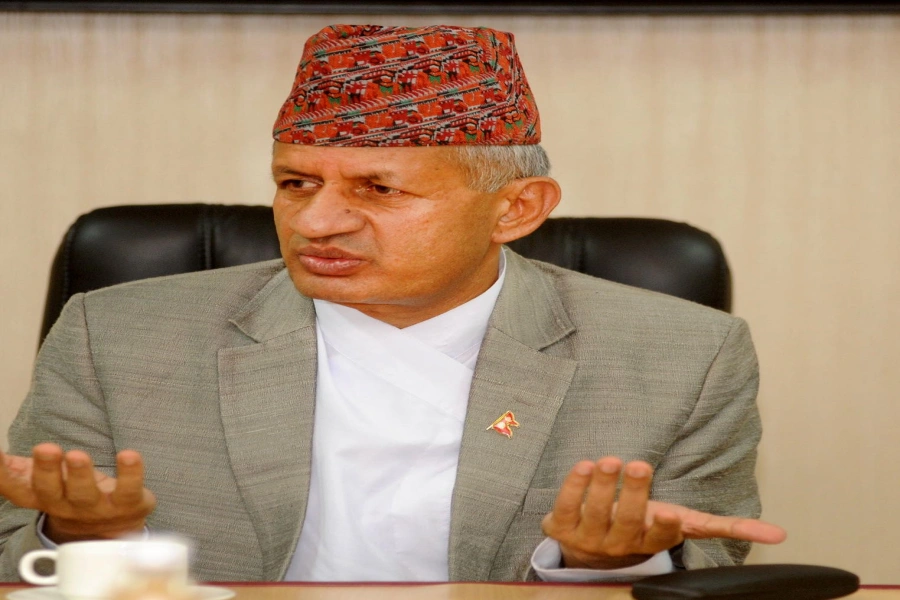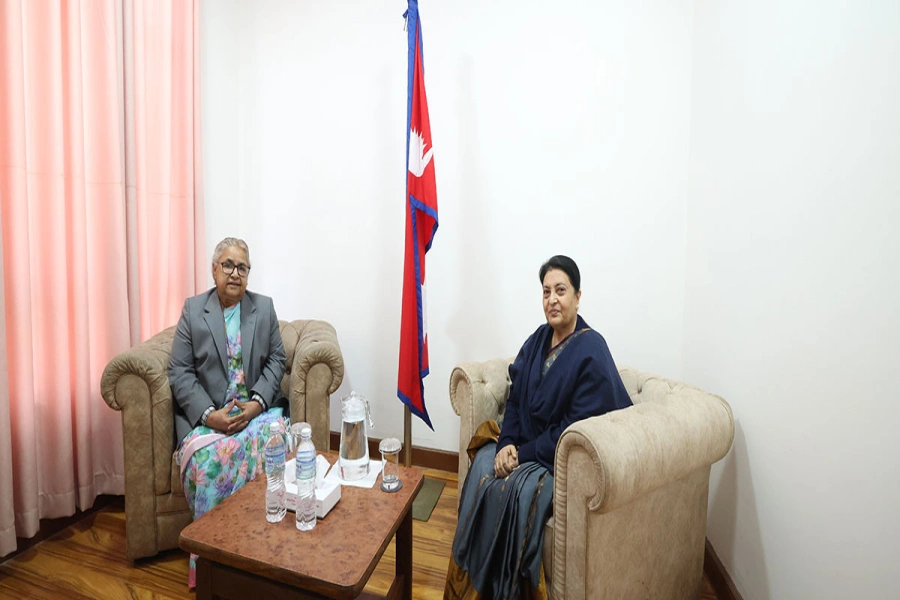KATHMANDU, Oct 20: Although the government has the task of controlling the abnormal price increase and black market, sale and distribution of inedible food stuff during the festival, the parliamentary committee lacks efforts to monitor these issues.
Since mid-September, parliamentary committees such as the Industry and Commerce Committee, Labor and Consumer Welfare Committee, and State Affairs Committee have shown interest in addressing these concerns. However, due to a lack of effective monitoring during the eve of Dashain, prices continue to rise, the black market thrives, and the distribution of inedible items remains largely unregulated.
As the festival season approaches, prices tend to rise. Government data confirms an 8.19 percent price increase at this time. Although the government aims to maintain the price increase within the desired limit of 6.5 percent for the current fiscal year 2023/24, it has already exceeded this limit in Shrawan (mid-July to mid-August) and Bhadra (mid-August to mid-September).
Based on the data of the first two months of the current year released by the Nepal Rastra Bank on October 17, the current economic and financial situation of the country shows that the price increase has been very slow.
Understanding Stock Market

It has started to be commented that the parliamentary committee has become a mute spectator on the issue of monitoring the work being done by the government and addressing the shortcomings. According to the Parliament Secretariat, most MPs have returned to their home districts after parliamentary committee meetings were adjourned due to a lack of quorum. In such circumstances, the absence of government market monitoring has left consumers vulnerable to black markets, increase in the sale of expired non-food items, and sudden price increases and creating an artificial sugar shortage.
The market monitoring activities are only conducted targeting major festivals in the name of consumer protection. According to the government officials, these infrequent market monitoring activities are more focused on imposing cash fines rather than establishing effective order. Unfortunately, these fines have not led to significant improvements in the market, and consequently, the issue of consumer market malpractice persists.
Consumer’s rights are always violated during major festivals like Dashain, Tihar and Chhath due to lack of effective monitoring. At such times, activities such as unnecessary hoarding, concealing goods, creating artificial shortages and price manipulation through the black market may increase, so it is necessary to strengthen supply management from all levels of the government, and market monitoring by various government regulatory agencies should be comprehensive and effective. Experts say that it is necessary to increase parliamentary monitoring.
Parliament Secretariat officials note that, with most parliamentary committees failing to reach quorum during meetings, MPs have returned to their home districts. This has led to a shortage of MPs in parliament and limited staff capacity. "At present, there is an insufficient number of MPs in the parliament. Even the staff is limited. Some lawmakers are raising concerns about how this affects the functioning of the parliament. According to these lawmakers, the government has not conducted market monitoring so far. The parliamentary committee has also not overseen the government's work. Without regular market monitoring, business operators are currently unregulated," some MPs complained.
The government has been monitoring the market only after the festival approaches and people upload the pictures of such market malpractices on social media. Starting September 18, with the participation of officials from nine departments dealing with consumers, including the District Administration Office, Kathmandu, there are preparations to intensify market monitoring, but it is being criticized for not being implemented. It is alleged that local authorities have not acted proactively due to a lack of government directives, despite being primarily responsible for market monitoring. Last year too, the market was monitored only when the festival was approaching.
The Consumer Protection Act of 2018, replacing the Consumer Protection Act of 1998, emphasizes the protection of consumer rights as a fundamental right. The act stipulates that federal government agencies must establish rules for commercial activities within provincial jurisdiction, while local authorities must establish procedures and guidelines for commercial activities within their jurisdiction. It also mandates the establishment of consumer protection councils and market monitoring committees at various government levels. However, these entities have shown limited interest in fulfilling their roles.
Directives issued to the State Affairs Committee, Industry and Commerce Committee, and Labor and Consumer Welfare Committee of the House of Representatives to monitor government activities have not yielded the desired results. The Industry Committee has asserted its commitment to market monitoring but acknowledges its limitations. It has reported monitoring activities in some areas outside the valley. CPN-UML MP Hemraj Rai said that the Industry Committee monitored customs and markets at Dhangadhi in Kanchanpur and Nepalgunj in Banke from October 11 to 14. He said that the monitoring and surveillance that was supposed to be done in the valley was not possible because the parliamentarians had gone to their home districts.
Industry Committee member and Janata Samajwadi Party MP Rekha Yadav said that she could not monitor the valley during Dashain, and that she would engage in monitoring activities between Dashain and Tihar. Likewise, Rastriya Prajatantra Party MP Dol Prasad Aryal said that since the market needs to be monitored throughout the year, it should not be limited to festival periods, now the committee will give instructions for monitoring in all months and there is a need to enhance the monitoring.




































